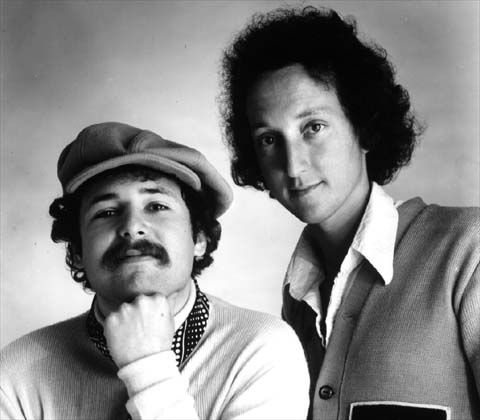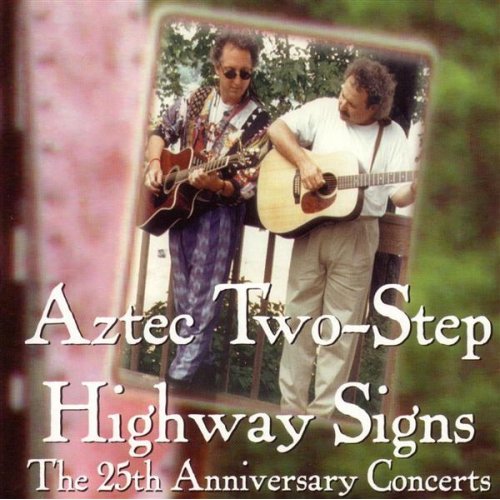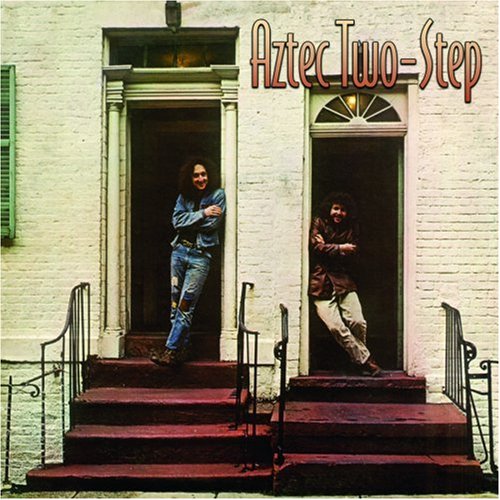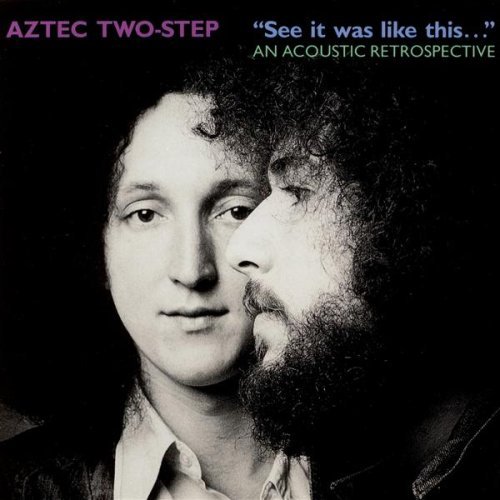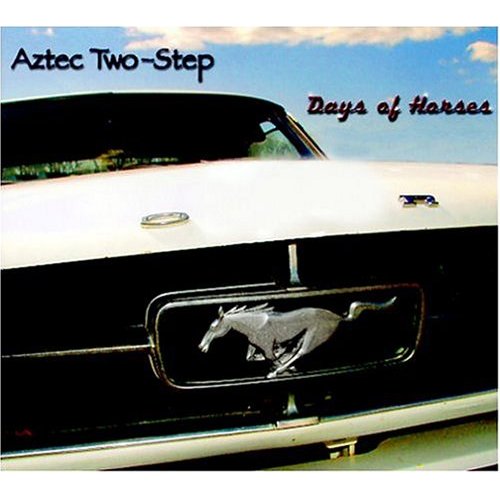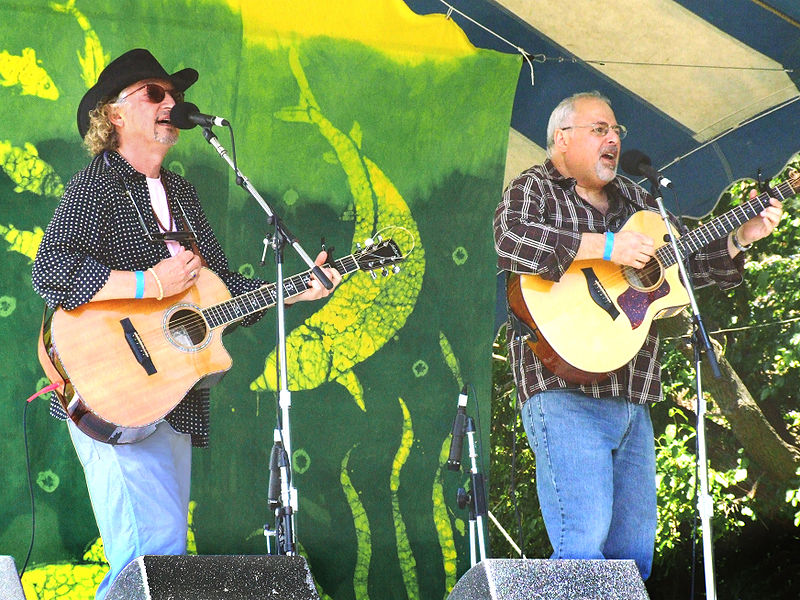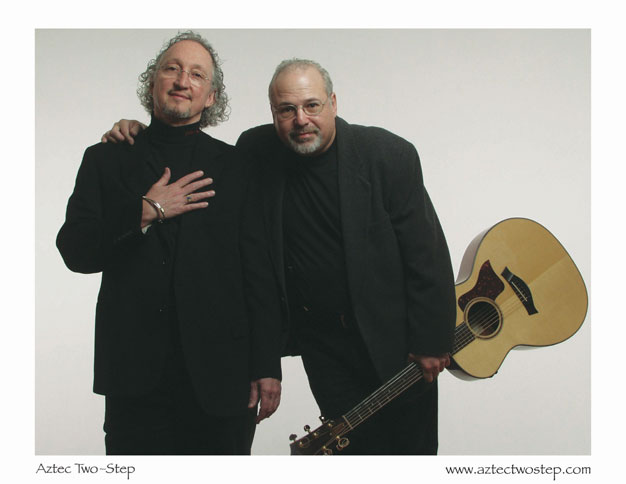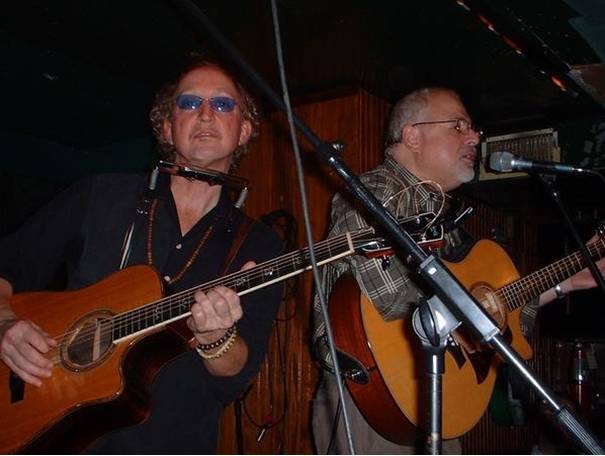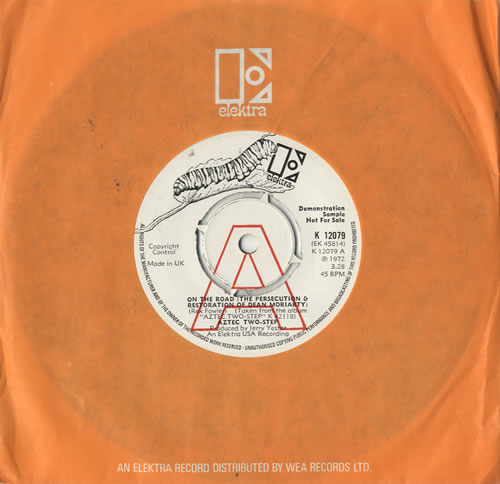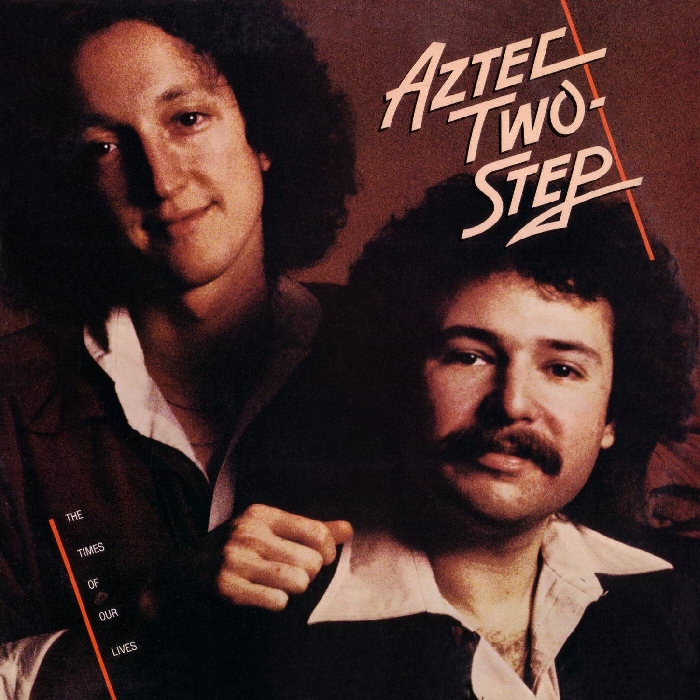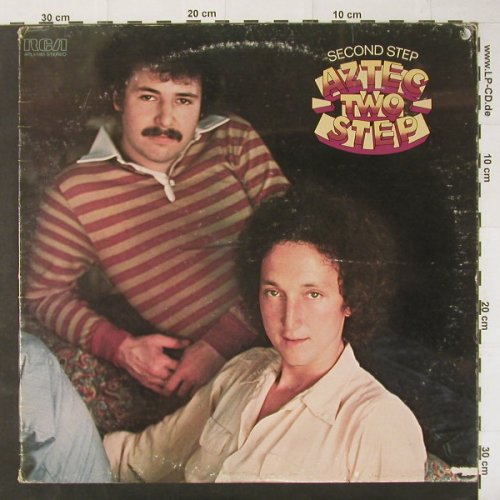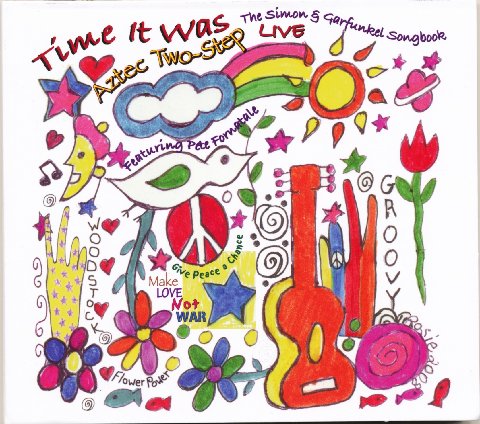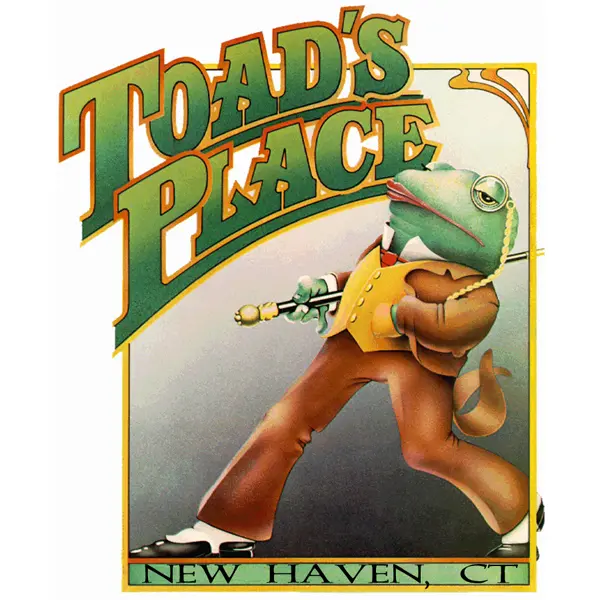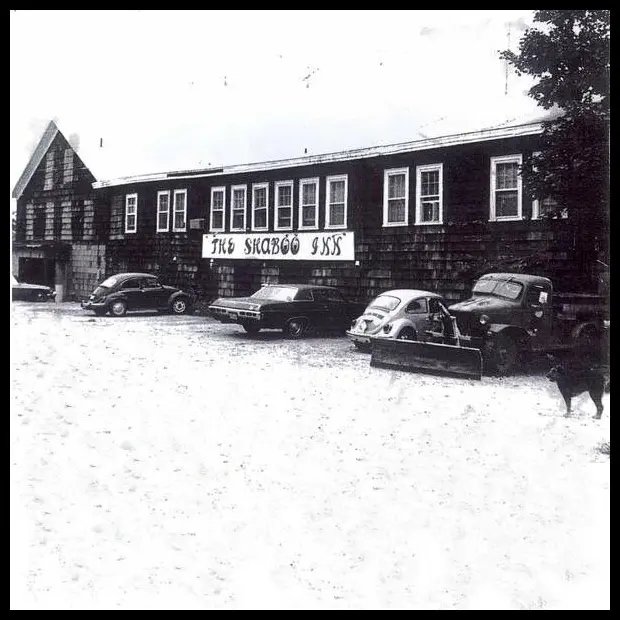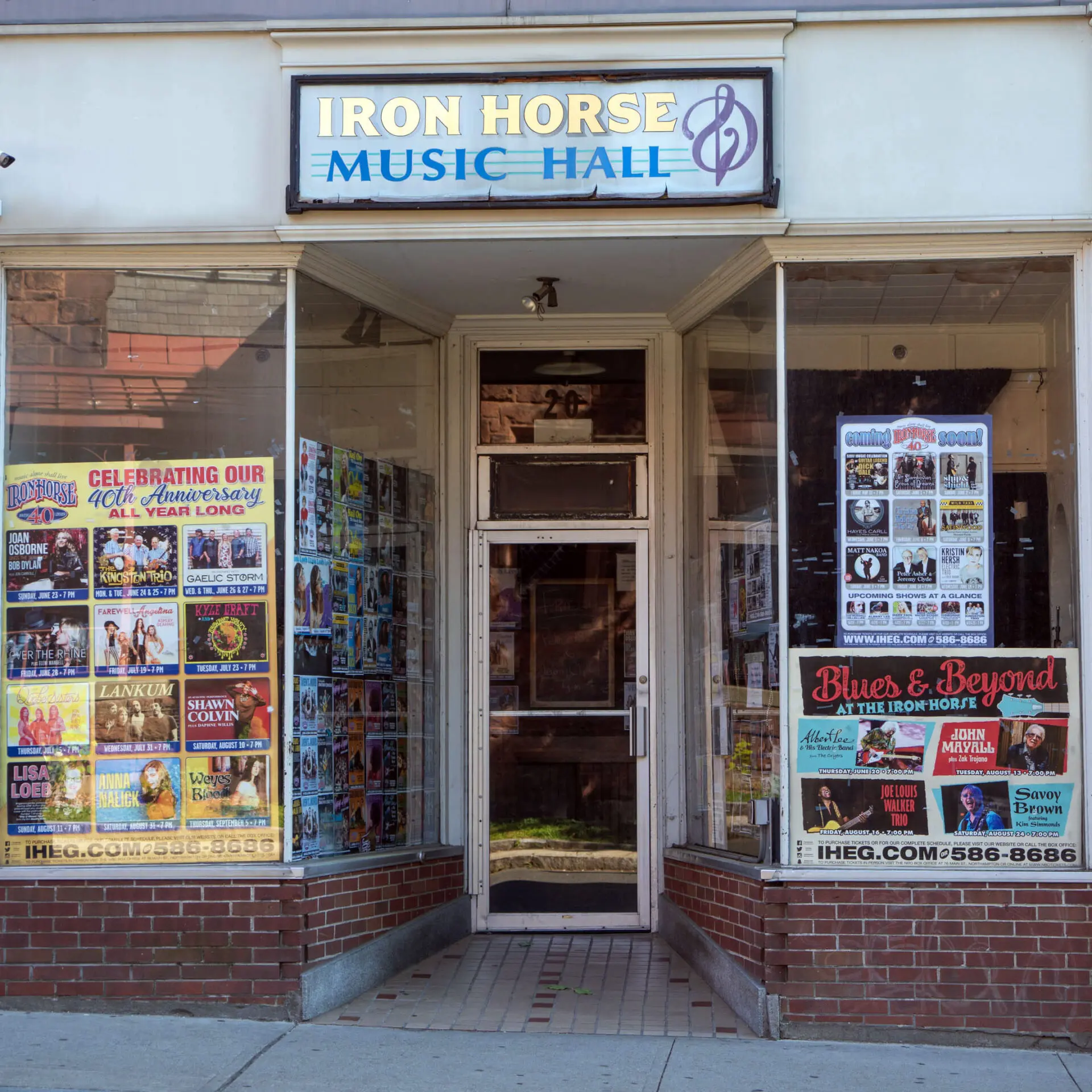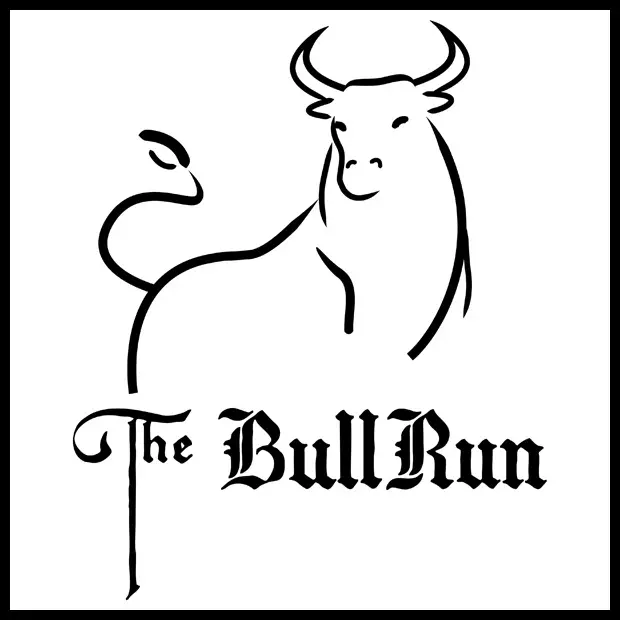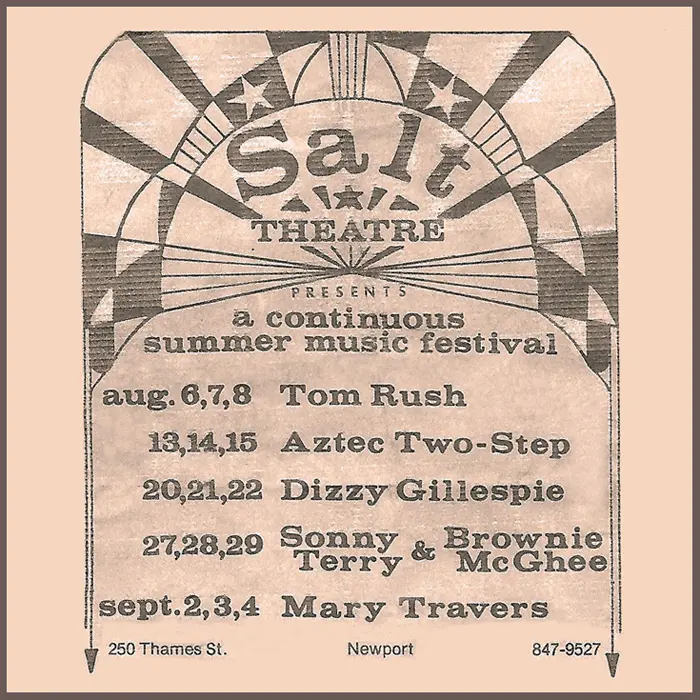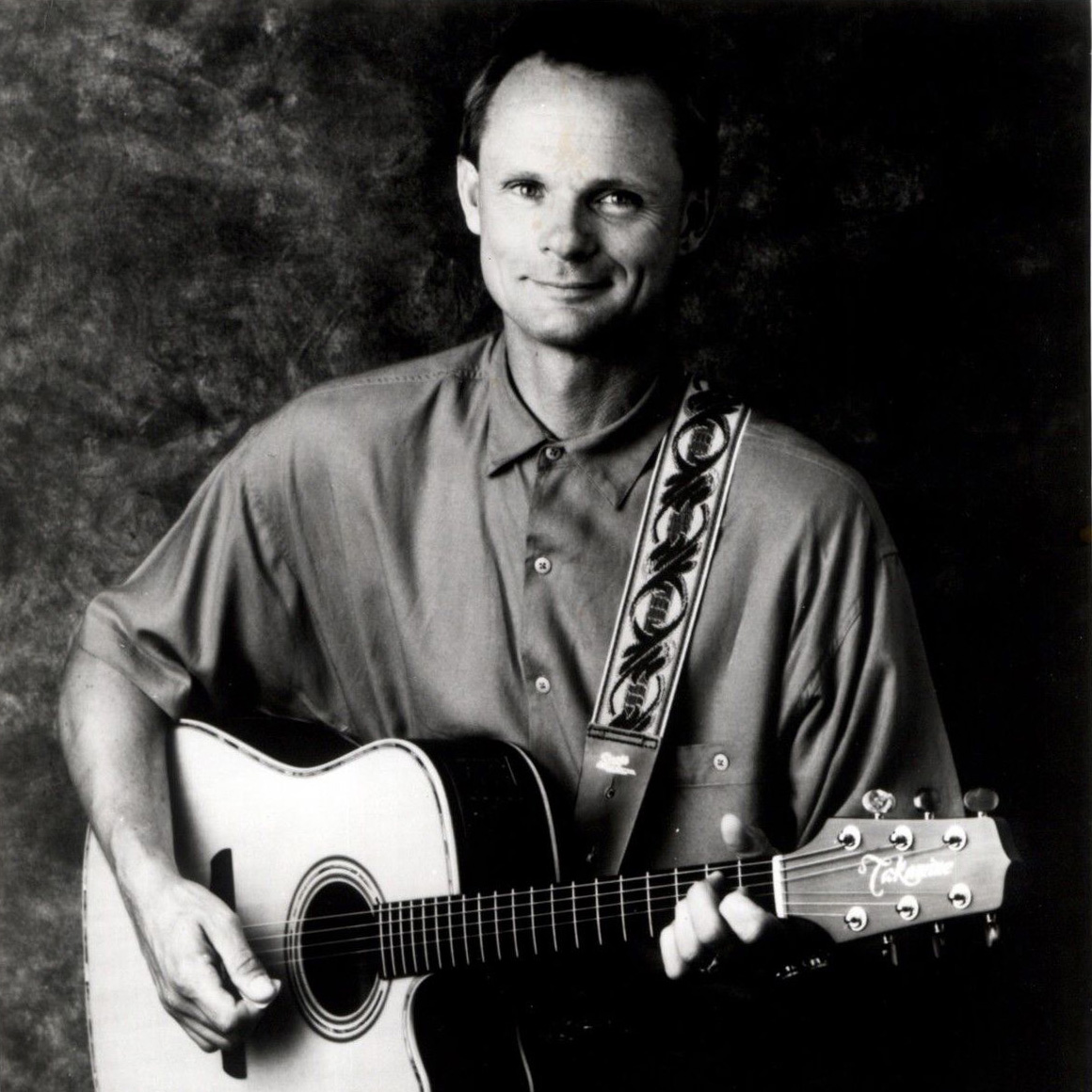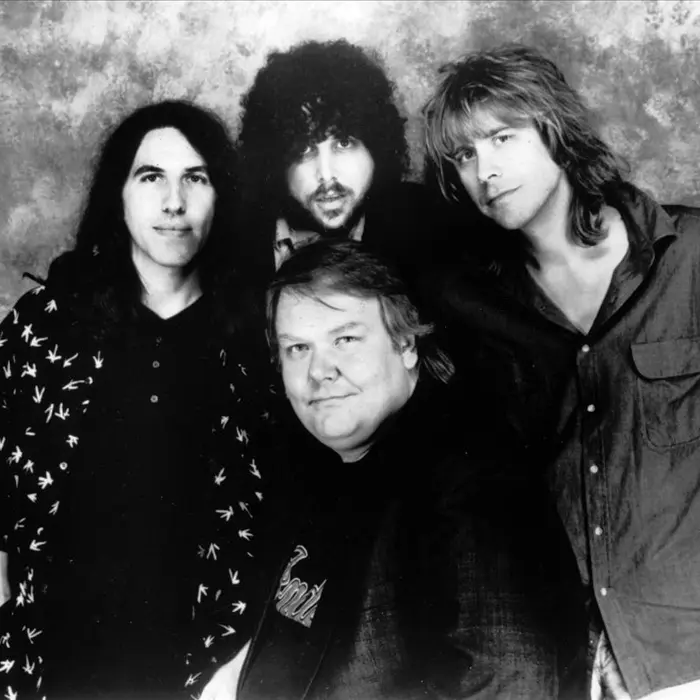Aztec Two-Step
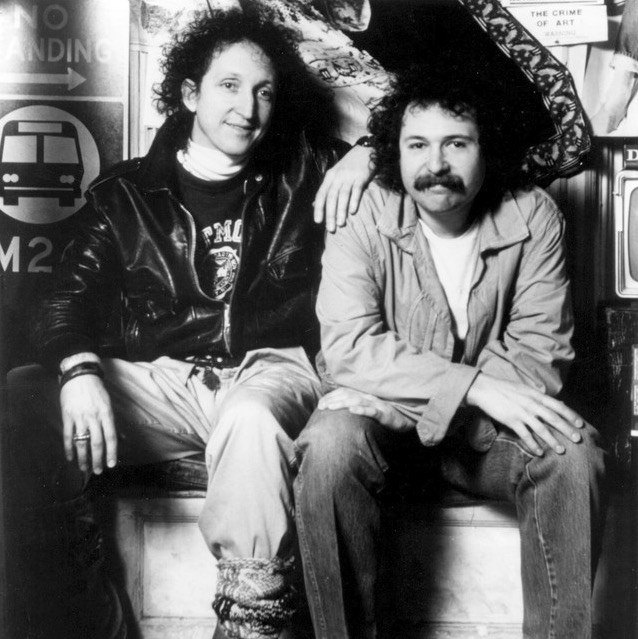
Rock ‘n’ roll history is loaded to the gills with partnerships whose extraordinary talents and teamwork sent them to the top of the charts on a regular basis and in some cases changed popular music forever. Consider the following names: Lennon-McCartney, Jagger-Richards, Axl-Slash and Tyler-Perry. And when it comes to folk, the most glaring example is Simon and Garfunkel but the most enduring duo in that genre – arguably as influential as any other based purely on longevity (and despite being a “no-hit wonder”) – was Rex Fowler and Neil Shulman, collectively known as Aztec Two-Step and colloquially known as ATS.
The group epitomized the contemporary folk music of their era, recorded 17 albums of original material with sublime harmonies and what critics called “intellectual lyricism” and were an instant crowd favorite wherever they appeared. And to their great credit, unlike all of the aforementioned pairings, Fowler and Shulman never had years-long periods of acrimonious separation during which their disparagement, derision and defamation of one another made them seem less like kindred spirits and more like mortal enemies.
Formation, Elektra signing, 1970s albums
Fowler, who spent his childhood in Connecticut and Maine, and Shulman, a Manhattanite, formed ATS after they met by chance at the Stone Phoenix Coffeehouse in Boston in 1971 during an open-mic night: Fowler was 24 at the time and Shulman was 19. They named themselves Aztec Two-Step after a line in Lawrence Ferlinghetti’s book A Coney Island of the Mind and relocated to New York City two months after meeting, making the Big Apple their base for the rest of their career.
They landed a deal with Elektra in 1972 and recorded their self-titled debut album, which met with broad critical acclaim. It included a regional hit, “The Persecution and Restoration of Dean Moriarty (On the Road)” – based on the tragic hero in Lowell, Massachusetts, native Jack Kerouac’s groundbreaking 1957 novel On The Road – and guest performers included Jerry Yester and John Sebastian (of The Lovin’ Spoonful) and Doug Dillard (of Dillard & Clark). In 1976, ATS recorded Two’s Company for RCA Victor followed by Adjoining Suites in 1977 for the same label and The Times of Our Lives in 1979 for Waterhouse Records. The pair toured incessantly over the next several years as the new-romantic and hair-metal bands that would soon dominate the mid-‘80s began appearing on the scene.
1980S/1990S/2000S Albums, No-Hit Wonder, Disbanding, ATS 2.0
In 1986, ATS cut Living in America, released by Reflex Records, which won the New York Music Award for Best Folk Album and led to appearances on Late Night with David Letterman, The King Biscuit Flower Hour and World Café Live. Also that year, they recorded a two-hour-long DVD, The 15th Anniversary Live All-Star Concert. In 1989, the duo recorded See, It Was Like This on the Flying Fish label followed by Of Age on Beacon Records (1993) and Highway Signs: The 25th Anniversary Concerts (1996, recorded at three New York coffeehouses in 1995). In 1999, PBS broadcast a documentary about ATS, No-Hit Wonder.
In 2001, Red Engine Records issued the compilation album Live & Rare to celebrate the pair’s 30th year together and the label released ATS’s next five discs starting with Plums: Selections 1976-79 (2003) and Days of Horses (2004). In 2007, the group appeared at the Lowell Celebrates Kerouac Festival (marking the 50th anniversary of On The Road’s publication) and recorded a DVD, Live at TCAN, at the Center for the Arts in Natick, Massachusetts. Their next album was Time It Was: The Simon & Garfunkel Songbook in 2009, followed by Cause & Effect (2012) and their final studio outing, Naked (2017).
In 2018, Shulman retired and Fowler formed a new quartet, ATS 2.0, featuring his wife Dodie Pettit, a founding member of the trailblazing mid-‘60s all-female band The Untouchable, on keyboards and guitar; Steven “Muddy” Roues, who’s played with B.B. King, Bo Diddley and Howlin’ Wolf, on bass and harmonica; and Peter Hohmeister, a locally renowned performer and public-school music teacher, on drums.
Notable appearances, Opening spots, Legacy
In the mid-1970s and throughout 1980s, ATS performed multiple times at prominent folk venues including The Bottom Line in Greenwich Village, The Troubadour in West Hollywood and The Cellar Door in Washington DC. In new England, they gigged regularly at the Shaboo Inn in Willimantic, Connecticut, a state in which Aztec played particularly often over the decades at venues including the Agora Ballroom (West Hartford), Lloyd’s Jazz Club (North Hartford), the Palace Theatre (Stamford), Toad’s Place (New Haven) and The Bread Box Theatre (Willimantic).
ATS made regular appearances in every other New England state over the decades including Massachusetts venues like the Iron Horse Music Hall (Northampton), Music Inn (Lenox), the Rose Garden Coffee House (Mansfield), Jonathan Swift’s (Cambridge), the Narrows Center for the Arts (Fall River), The Bull Run (Shirley) and the Paradise Rock Club (Boston); Rhode Island spots such as the Courthouse Center for the Arts (Kingston), Center Stage (Providence) and SALT (Newport); Meadowbrook Musical Arts Center in Gilford, New Hampshire; the Flynn Center for the Performing Arts in Burlington, Vermont; and Union Hall in Vienna, Maine.
Though headliners in their own right, ATS opened often for more nationally known performers; Fowler has credited singer-songwriter Harry Chapin for being the first such artist to invite them to do so. The list of New England-rooted musicians with whom ATS appeared includes Tom Rush, Carly Simon, Bonnie Raitt, Jonathan Edwards, Michael Bolton, Arlo Guthrie and NRBQ. The star-studded list of other acts for whom the duo opened includes The Beach Boys, The Band, Jim Croce, Bruce Springsteen, Roger McGuinn, Jose Feliciano, Richie Havens, Don McLean, Jackson Browne, Warren Zevon, Seals and Crofts, John Sebastian, Richard Thompson, America, Poco, New Riders of the Purple Sage, Loggins and Messina, Pure Prairie League, Jimmy Buffet and Joan Armatrading.
Speaking in 2012 about Fowler and Shulman’s unprecedented number of years together as a venerated folk act and their remarkable influence on the entire folk scene, John Platt of the National Public Radio station WFUV talked about how many of their songs are timeless. “The secret of Aztec Two-Step’s longevity isn’t just the harmony between Rex and Neal, it’s also the quality of the songs,” he said. “While some were mostly inspired by a specific moment in time, they resonate anew today.”
(by D.S. Monahan)

